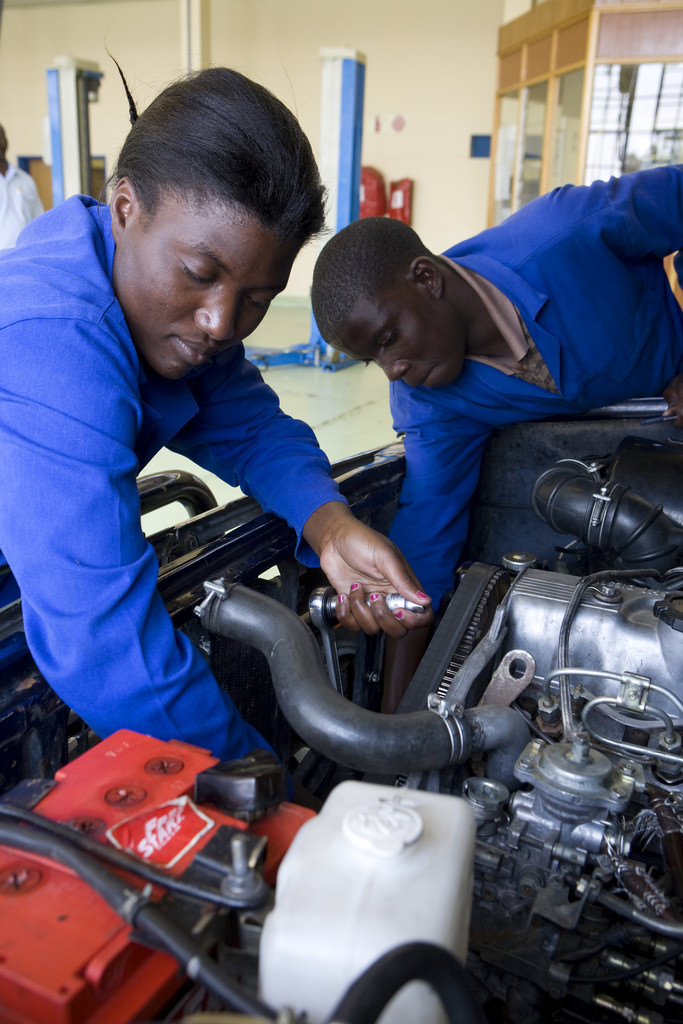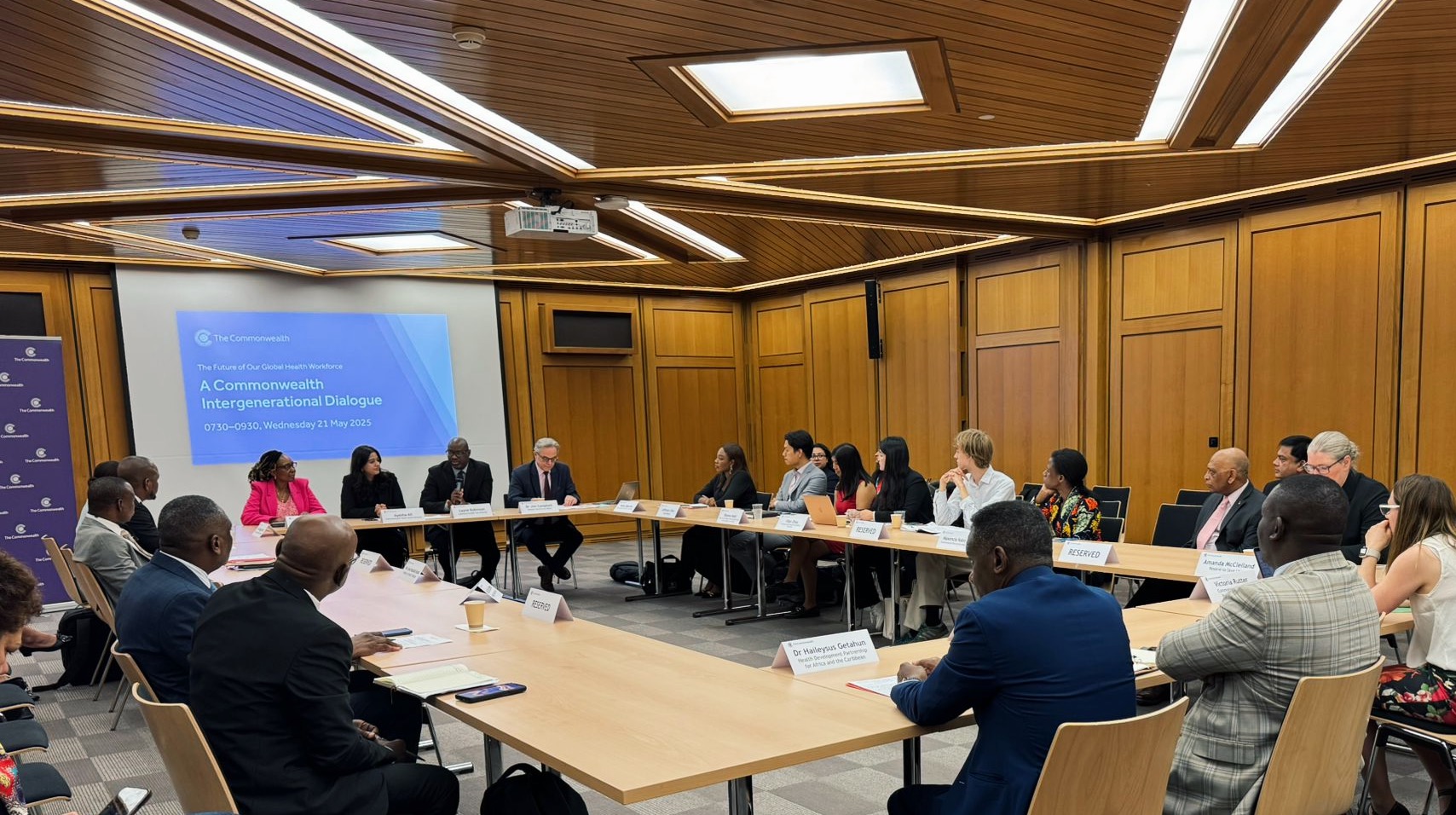“Policy action a challenge to youth initiatives”
October 18 Youth bulges are a global phenomenon and Uganda is no exception, with youths accounting for more than three-quarters of the population. As Munguongeyo Ivan, 24, a Commonwealth Correspondent from Kampala writes, that means successful youth assistance programmes are a priority.
Youth bulges are a global phenomenon and Uganda is no exception, with youths accounting for more than three-quarters of the population. As Munguongeyo Ivan, 24, a Commonwealth Correspondent from Kampala writes, that means successful youth assistance programmes are a priority.
Uganda’s youths face many daunting challenges, notably labour under-utilization, with more than one quarter of the working population under-utilized in relation to time, skills and pay, according to the Uganda Bureau of Statistics survey of 2015.
The greatest impediments to youth development are poor implementation of policies geared towards improvement of their status. For the past decades there have been several programmes to improve the status of youths, but little has been achieved in Uganda.
In the 1990s, the government introduced the Youth Entrepreneurial Scheme (YES). It was designed as a loan scheme for youths who wished to venture into business. Disturbingly, the 2014 findings by Gemma Ahaibwe and Swaibu Mbowa of the Economic Policy Research Centre (EPRC) indicated that the scheme did not perform as anticipated because it was largely perceived as a political tool.
Then there was the Northern Uganda Social Action Fund (NUSAF) that contributed little to improving youth livelihoods in the area. Now there is the much-debated Youth Livelihood Programme (YLP) under the ministry of Gender, Labour and Social Development. YLP was initiated to enhance the business ability of the youth, promote skills development and livelihood support of the youth.
However, the 2016 evaluation report by the ministry pinpointed underperformance. This evaluation noted slow progress in this area as only 36 per cent of the expected recoveries had been made by March 2016. This portrays an unhappy picture of how programmes initiated for youths have failed in Uganda.
Despite youths comprising a big percentage in Uganda, the government rarely consults young people on matters affecting their lives, hence there is need to promote participation and empowerment of young people. Empowerment should not be considered as solely the responsibility of the government, but a collective responsibility.
Youths can be considered as empowered when they themselves acknowledge that they have created, or can create, choices in life, are aware of the implications of those choices, make informed decisions, take actions based on those decisions, and accept responsibility for the consequences of those actions.
This should work concurrently with participation. Good practice in youth participation provides choices, is enjoyable, challenging and fun; relates to issues perceived as relevant by young people; involves training and skills development; ensures that young people are given ongoing support in their role; and provides them with a sense of belonging and ownership in relation to decision-making.
There is also need to improve on employment opportunities for both the skilled and unskilled youth. According to a survey carried out by ActionAid and the Uganda National NGO Forum in 2012, unemployment rate among young people in Uganda was 61.6 per cent. It also showed that over 400,000 youths are released annually into the job market to compete for approximately 9,000 available jobs.
This means that the majority of the youth in Uganda who are institutionally qualified are unable to find jobs, and the situation is even worse for semi-skilled and unskilled youths. These unemployed and underemployed youths end up redundant, hence a threat to the country’s security.
Developing and implementing appropriate strategies, policies and programmes to mitigate the challenges youths face must be more prioritised by the government than the current situation is. Any failure to provide appropriate opportunities for this large segment of the population could have enormous socio-economic and political consequences. Engaging the youth population fully is, therefore, no longer a choice, but an imperative in the development process.
photo credit: World Bank Photo Collection The Windhoek Vocational Training Centre in Khomasdal via photopin (license)
…………………………………………………………………………………………………………………
About me: I am Munguongeyo Ivan, from Kampala, Uganda. I hold a Bachelor’s Degree in Development Studies from Makerere University and currently am pursuing Master’s Degree in Rural Development at the same University. My aim is to be a lecturer in the development studies discipline. I also have wide knowledge in serving local communities and specifically working with NGOs to improve on the welfare of the rural poor. I am currently a volunteer with an NGO called Hands of Love Foundation.
…………………………………………………………………………………………………………………
Opinions expressed in this article are those of the author and do not necessarily represent the views of the Commonwealth Youth Programme. Articles are published in a spirit of dialogue, respect and understanding. If you disagree, why not submit a response?
To learn more about becoming a Commonwealth Correspondent please visit: http://www.yourcommonwealth.org/submit-articles/
…………………………………………………………………………………………………………………






